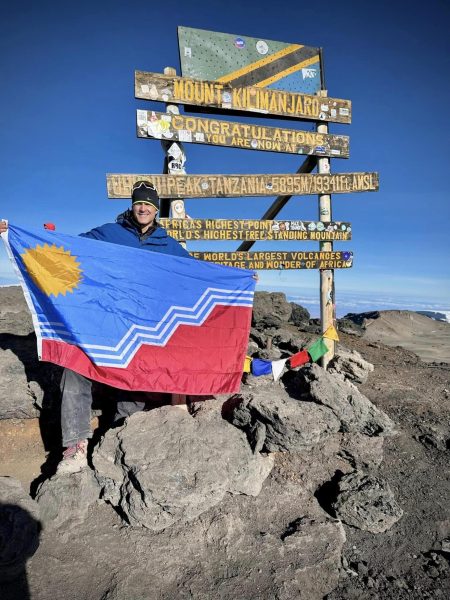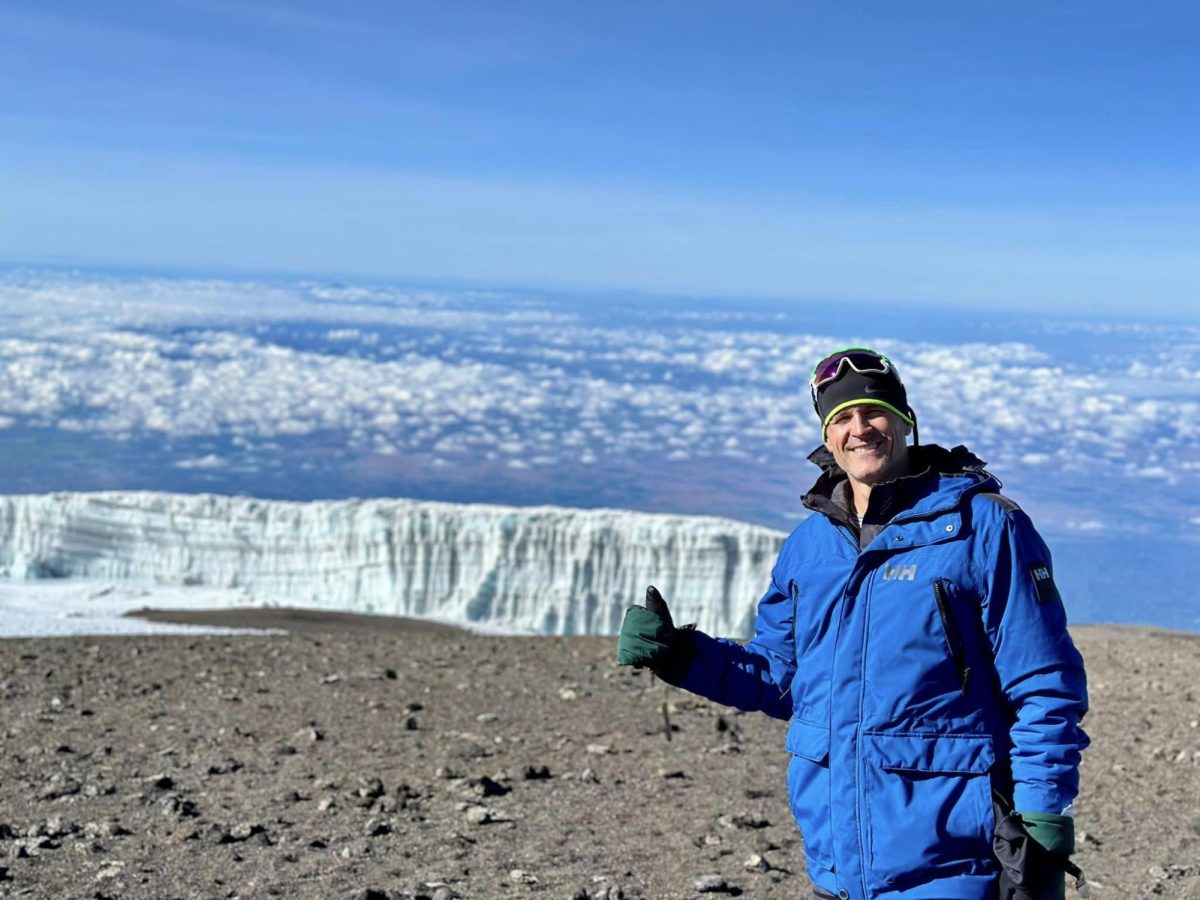The treacherous hike of Mount Kilimanjaro is a monumental feat that less than 0.005% of the world has accomplished. A recent addition to this exclusive group of people who have completed the hike is Sioux Falls Mayor Paul TenHaken.
Standing at a staggering 19,341 feet, Mt. Kilimanjaro and the journey to its summit require extensive training and a high fitness level even to begin dreaming about undertaking this daunting climb. TenHaken, however, is no stranger to challenges that push his body and mind to the limits, possessing an extensive record of impressive athletic endeavors.
Every year, TenHaken commits himself to training for a new, demanding physical challenge.
“When doing these big, hard challenges, I learn a lot about myself, [specifically], my limits of what I can and can’t do… all while finding new things that I enjoy. This year, I just happened to decide on climbing Mt. Kilimanjaro,” said TenHaken.
Committing oneself to the strenuous routine of consistent training requires willpower and an unyielding sense of motivation. TenHaken keeps himself motivated throughout his training by reminding himself of his goals and the purpose of pursuing these challenges.
“It is… hard to exert [myself] for these challenges [but] I tell myself that these are the moments that develop character, focus and perseverance,” said TenHaken.
For the majority of people who decide to attempt this climb, drastic changes in routine and intensive shifts in training are required to be physically capable of completing this feat. However, TenHaken lives by a motto that allowed his preparations and change in routine to be less extreme.
“There’s a saying that goes ‘stay ready to be ready,’ meaning, if you’re always ready, [and] if you always stay in shape, you’re ready for whatever comes at you versus if you get out of shape… now you have a lot of work ahead of you [to get to that same point],” said TenHaken.
This mindset he carries with him facilitated a relatively straightforward transition in his training for the hike, and aside from a few small adjustments to his routine to focus on cardiovascular strength, it remained the same. However, this does not mean the training was not mentally and physically taxing. Somewhere along his journey, he came to a jarring realization: the mind is what shuts his body down even when it is capable of more.
“[For me], I always use the 40% number. On my bike, I have a little 40 right on the stem of it, so when I look down… I focus on [the number]. This reminds me that when my body says, ‘I’m done, I can’t bike another pedal, I can’t go another step,’ [I am] only 40% done. I still have another 60% in the tank, but it’s [my] mind that makes [me] quit a lot sooner,” said TenHaken.
On Oct. 8, 2024, his week-long trek, scaling up and down Mt. Kilimanjaro began with 13 fellow climbers who had arrived from four continents and 61 staff members ranging from cooks to guides to sherpas. After spending eight lengthy, cell service-free days together, TenHaken formed many close relationships with his fellow climbers who came from all places of the world, including India, England and Australia. Hearing about peoples’ stories and backgrounds helped TenHaken put into perspective and grasp how large the world truly is.
“When you fly halfway around the world… you feel insignificant, almost tiny. And what I’ve taken from this is that the more we can get out of our comfort zones and experience the world and experience other people with their different cultures… [the] deeper our respect for the diversity in our own communities [becomes],” said TenHaken.
After enduring six extensive days of arduous hiking, they reached Mt. Kilimanjaro’s summit and experienced sights and sensations unable to be fully captured by words.
“[I] was standing so high up [with] the clouds beneath me; the air was really thin and even breathing was really hard. That euphoric feeling of knowing that [I] just [did] something that only a fraction of this world has ever done was really cool,” said TenHaken.

During the journey up the mountain, with altitude levels increasing dramatically, the air thinned rapidly, and as TenHaken approached the summit, breathing and persisting through the conditions were not untroubled.
“I underestimated how physically demanding and challenging the altitude would be on my body. When [I] got to the top, I was not in a good place: I had a terrible headache, and… I was starting to feel sick and ill,” said TenHaken.
However, a person’s lowest moments brought out through new challenges, are also the moments that bring out the most growth and self-improvement within a person. As a species, we live for new experiences, but the inner drive to purposefully take on new challenges with the intention of self-growth is what distinguishes Paul TenHaken.
“Too many times we quit and run away from hard things. We say this is too hard or this is too uncomfortable… But where you really find out who you are and start to ‘stretch’ your canvas to become a better version of yourself is when you tackle those hard things… Stick with that job that’s difficult. Take that class that is really beating you down and you want to drop… [Just remember] that it is okay when you feel uncomfortable. It is okay when you feel beat down… all it means is that you are growing,” said TenHaken.
This story was originally published on The Statesman on December 18, 2024.




































